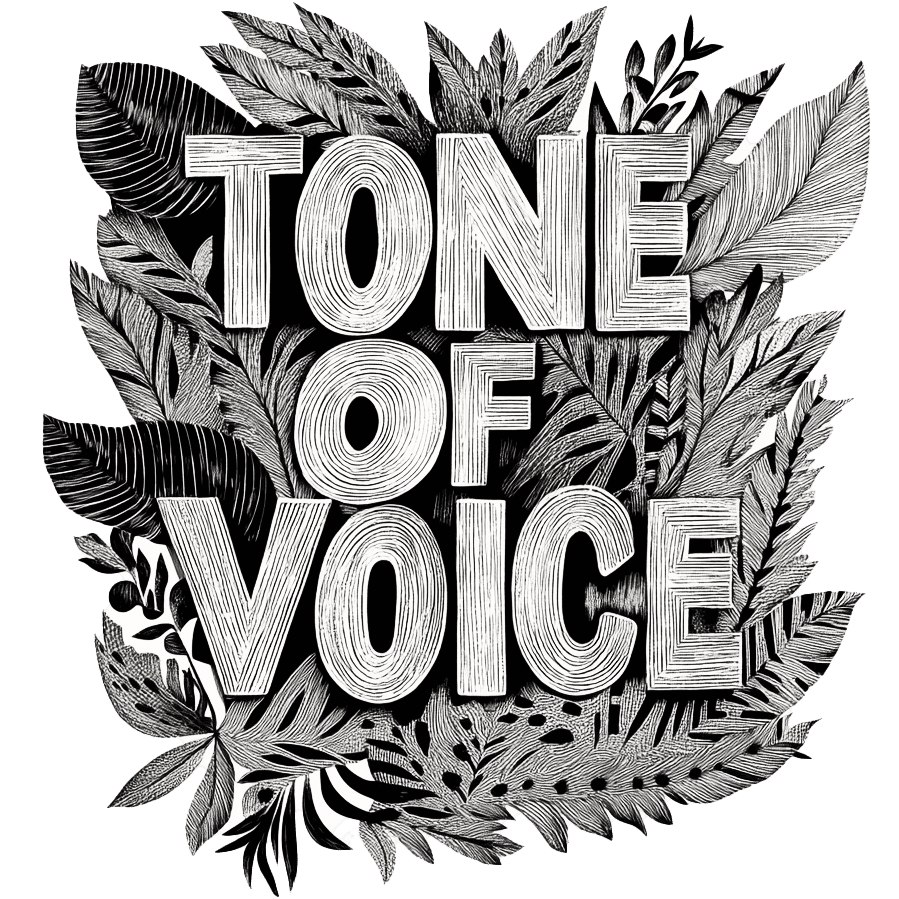
What is tone of voice?
Tone refers to the attitude, emotion, or style expressed by the author towards the subject matter and the audience. It encompasses the overall mood, atmosphere, and intention that the writer conveys through their choice of words, sentence structure, and stylistic devices. The tone can influence how readers perceive the content and the emotional response it elicits.
Selecting an appropriate tone is essential as it sets the overall impression and establishes a connection with the reader. The tone helps shape the reader’s perception of the writer’s intent, credibility, and the emotional impact of the message. It can create a sense of trust, engage the reader’s emotions, and effectively convey information or opinions.
Blend different tones together
By blending different tones, such as combining humor with introspection or authority with playfulness, writers can create a distinctive style that captures the complexity of their message. Skillful use of mixed tones can add depth, intrigue, and originality to the writing, making it memorable and engaging.
Is tone of voice describing a mood?
Many people tend to confuse tone with a mood. Tone encompasses more than just the emotional atmosphere; it also includes the author’s attitude, purpose, and style. Another misconception is that tone is fixed throughout a piece of writing. In reality, tone can shift and evolve depending on the context, audience, or the writer’s intended effect. It is essential to be mindful of these misconceptions and to approach tone with a nuanced understanding.
A list of tones you can use in your AI writing prompts
Here is a list of 60 words you can use to describe a tone in your writing.
- Amiable: Friendly and pleasant in tone, conveying a sense of warmth and approachability.
- Authoritative: Commanding and confident, conveying expertise and knowledge on the subject.
- Biting: Sharp and critical, with a tone that is meant to be cutting or stinging.
- Candid: Frank and straightforward, without holding back or sugarcoating.
- Casual: Relaxed and informal, characterized by a tone that is laid-back and conversational.
- Cynical: Distrustful and pessimistic, often expressing a mocking or sarcastic tone.
- Descriptive: Vivid and detailed, providing a tone that paints a clear and vibrant picture.
- Detached: Emotionally disengaged, conveying a sense of objectivity and impartiality.
- Didactic: Instructive and educational, characterized by a tone that is intended to teach or impart knowledge.
- Dramatic: Intense and emotionally charged, evoking strong emotions in the reader.
- Eerie: Strange and unsettling, evoking a tone of mystery and unease.
- Eloquent: Persuasive and articulate, using language in a fluent and expressive manner.
- Foreboding: Ominous and menacing, conveying a tone of impending danger or disaster.
- Formal: Polite and reserved, conforming to established rules and conventions of writing.
- Gentle: Soft and mild in tone, conveying a sense of tenderness and kindness.
- Harsh: Severe and critical, characterized by a tone that is unkind or unsympathetic.
- Humble: Modest and unassuming, often expressing deference or a lack of self-importance.
- Incisive: Sharp and penetrating, conveying a tone of keen observation and analysis.
- Informative: Educational and fact-based, providing knowledge and details in a clear manner.
- Inspiring: Motivational and uplifting, conveying a tone of encouragement and inspiration.
- Ironic: Expressing the opposite of what is meant, often with a tone of mockery or humor.
- Laudatory: Expressing praise and admiration, conveying a tone of high regard and appreciation.
- Lighthearted: Carefree and cheerful, conveying a tone of playfulness and enjoyment.
- Melancholic: Reflective and sorrowful, evoking a tone of sadness or gloom.
- Nostalgic: Sentimental and wistful, often evoking a tone of longing for the past.
- Objective: Neutral and unbiased, conveying information without personal opinion or emotion.
- Optimistic: Hopeful and positive, often expressing a tone of confidence and encouragement.
- Patriotic: Expressing love and devotion for one’s country, evoking national pride and loyalty.
- Passionate: Intense and fervent, characterized by a tone that is deeply emotional and enthusiastic.
- Pensive: Thoughtful and reflective, evoking a tone of deep contemplation or introspection.
- Playful: Lively and amusing, characterized by a tone that is light-hearted and mischievous.
- Poignant: Evoking a keen sense of sadness or regret, often tinged with a touch of beauty.
- Polite: Courteous and respectful, using language that is considerate and well-mannered.
- Provocative: Stimulating and challenging, often evoking a tone of controversy or debate.
- Quizzical: Expressing curiosity or confusion, often with a tone that is questioning or skeptical.
- Reassuring: Comforting and calming, conveying a tone of solace and security.
- Regretful: Feeling remorse or sorrow, often conveying a tone of remorseful reflection.
- Reflective: Thoughtful and introspective, conveying a tone of deep contemplation.
- Resolute: Firm and determined, expressing a tone of unwavering resolve or conviction.
- Satirical: Using irony, sarcasm, or ridicule to critique or mock a subject, often with a humorous tone.
- Sentimental: Emotional and nostalgic, evoking a tone of tender affection and fondness.
- Sincere: Genuine and heartfelt, conveying honesty and authenticity in the tone.
- Skeptical: Doubtful and questioning, often expressing a tone of disbelief or mistrust.
- Soothing: Calming and comforting, evoking a tone that is gentle and reassuring.
- Suspenseful: Tense and thrilling, conveying a tone that keeps the reader on the edge of their seat.
- Stern: Serious and strict, characterized by a tone that is authoritative and unyielding.
- Sultry: Sensually seductive, evoking a tone of passion and desire.
- Sympathetic: Understanding and compassionate, conveying a tone of empathy and support.
- Thoughtful: Considerate and contemplative, conveying a tone that is reflective and introspective.
- Urgent: Insistent and pressing, often conveying a tone of importance and immediate action.
- Vibrant: Lively and energetic, evoking a tone that is full of vitality and enthusiasm.
- Witty: Clever and humorous, characterized by a tone that is quick-witted and amusing.
- Worried: Anxious and concerned, often expressing a tone of apprehension or unease.
- Compassionate: Showing empathy and care, conveying a tone of understanding and kindness.
- Contemptuous: Expressing a strong dislike or disdain, often with a tone of scorn or contempt.
- Gritty: Bold and determined, expressing a tone of resilience and perseverance.
- Intimate: Personal and confidential, evoking a tone that is familiar and close.
- Jovial: Cheerful and festive, characterized by a tone that is merry and joyful.
- Meditative: Deeply thoughtful and contemplative, conveying a tone of introspection and serenity.
- Whimsical: Playfully quaint or fanciful, often characterized by a tone that is imaginative and unpredictable.
Try the Tone Transformer Tool
You can experiment with applying one or more these tones to any piece of writing using our Tone Transformer tool.









